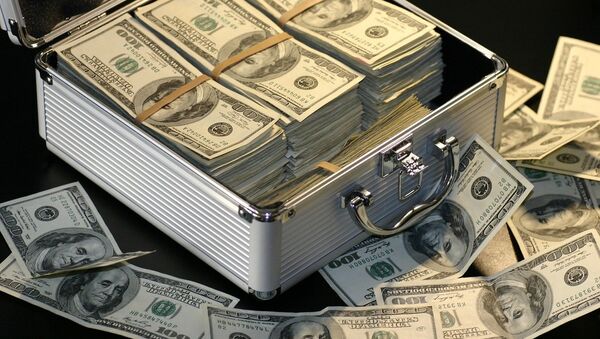North Korea has allegedly resumed forging $100 bills, which are of an unprecedented quality, and can even be passed off as genuine currency.
It took a highly-qualified team of KEB Hana Bank experts from South Korea to determine that the so-called "supernote", which looked very realistic, was in fact a fake. A $100 bill was found in South Korea, bank officials reported Tuesday. According to the forgery specialists, those, who printed the banknotes, "have the facilities and a high level of technology matching that of a government."
"They are made with special ink that changes color depending on the angle, patterned paper and Intaglio printing that gives texture to the surface of a note," Chosun Ilbo, Hana Bank spokesman, told The Hankyoreh newspaper.
READ MORE: 'Blatantly Fake Money': Bank of America Dispenses Counterfeit Cash
"To print supernote-level forgeries, you need a minting corporation-level production line in place, which costs hundreds of billions of won. This makes it difficult for ordinary criminal organizations to produce them," another bank source said.
Such a statement can’t help but spark panic among the officials, who fear that thousands of these fake bills are in circulation not only in South Korea, but possibly worldwide.
READ MORE: Isolation and Pressure: Washington's Two-Pronged Strategy on North Korea
North Korea has previously been busted for counterfeiting American currency, with the US’ 2004 campaign to stem the flow of "supernotes" spanning over 130 countries. The long-lasting fight culminated in 2005 with a sham wedding, dubbed "Operation Royal Charm," with the bride and groom being undercover agents.
The elaborate operation led to the arrest of 87 people in raids, and was aimed at luring members of trafficking and counterfeiting circles into a trap. Later that same year, the United States barred Americans from banking with Banco Delta Asia, considering it "primary money-laundering concern." The ban led to the freezing of an estimated $25 million in accounts linked to North Korea.


